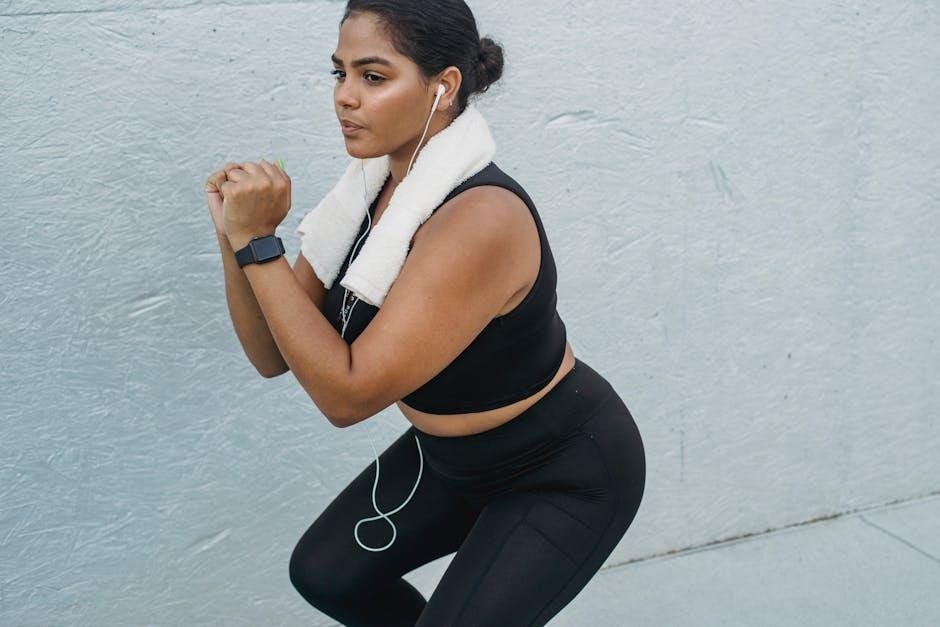When it comes to maximizing athletic performance, training hard is only part of the equation. Equally important is what you fuel your body with—your nutrition. The right diet can enhance endurance, speed up recovery, and help you achieve your fitness goals more efficiently. In this article, we’ll explore practical nutrition tips that have been shown to support athletic performance, whether you’re a weekend warrior or a seasoned competitor. Read on to learn how simple adjustments in your eating habits can lead to big gains on the field, track, or gym.
Table of Contents
- Understanding Macronutrients for Optimal Energy and Recovery
- Hydration Strategies to Enhance Endurance and Focus
- Timing Your Meals and Snacks for Peak Performance
- Supplements That May Support Athletic Goals Safely
- The Way Forward
Understanding Macronutrients for Optimal Energy and Recovery
Fueling your body with the right balance of macronutrients is crucial to maximizing both energy levels and recovery post-exercise. Carbohydrates serve as the primary energy source, replenishing glycogen stores and providing rapid fuel during high-intensity activities. Incorporating complex carbs like whole grains, fruits, and vegetables ensures a sustained energy release, keeping you active and alert throughout your training sessions. Proteins play an essential role in muscle repair and growth, helping you recover more efficiently and reduce soreness. Lean meats, legumes, and dairy are excellent protein sources that support the rebuilding of muscle fibers damaged during workouts.
Fats are often misunderstood but remain a vital part of athletic nutrition, offering long-lasting energy and assisting in the absorption of fat-soluble vitamins. Focus on healthy fats found in avocados, nuts, seeds, and olive oil to enhance overall performance without the drawbacks associated with trans fats or excessive saturated fats. To optimize energy and recovery, remember to:
- Balance all three macronutrients: Avoid extreme diets skewing heavily towards one group.
- Time meals effectively: Consuming carbs and proteins before and after workouts supports energy supply and muscle repair.
- Stay hydrated: Fluids work hand-in-hand with macronutrients to maintain optimal performance.
Hydration Strategies to Enhance Endurance and Focus
Staying properly hydrated is paramount for maintaining endurance and sharp mental focus during any athletic activity. When the body is well-hydrated, it efficiently regulates temperature, sustains muscle function, and supports cognitive clarity, allowing you to push harder and think clearer. Incorporating regular fluid intake before, during, and after exercise is key. Start hydrating several hours prior to your workout with water or electrolyte-rich beverages to top off your body’s reserves. During prolonged or intense sessions, aim to sip fluids consistently rather than waiting for thirst to hit, as thirst can be a delayed indicator of dehydration.
To optimize hydration, consider these proven tactics:
- Electrolyte balance: Include balanced amounts of sodium, potassium, and magnesium to replenish what is lost through sweat and maintain nerve and muscle function.
- Timed hydration: Establish a schedule for fluid consumption, such as drinking every 15-20 minutes during activity.
- Monitor urine color: A pale yellow color indicates proper hydration, whereas darker shades suggest a need for more fluids.
- Avoid excessive caffeine and alcohol: These can promote dehydration and counteract your hydration efforts.
By following these strategies, you ensure that your body stays fueled and your mind stays focused, allowing peak performance that lasts.
Timing Your Meals and Snacks for Peak Performance
Focusing on when you eat is just as important as what you eat when aiming for optimal athletic output. By spacing meals and snacks strategically throughout the day, you maintain steady energy levels and prevent performance dips. For example, having a balanced meal with carbohydrates, protein, and healthy fats about 3 to 4 hours before exercise ensures your muscles are fueled adequately. Closer to your workout—approximately 30 to 60 minutes before—you can opt for a small, easily digestible snack like a banana or a granola bar to top off glycogen stores without causing discomfort.
Post-exercise nutrition plays a crucial role in recovery and preparation for your next session. Aim to consume a snack or meal rich in protein and carbohydrates within 30 to 60 minutes after training. This window is prime for muscle repair and glycogen replenishment. Some smart choices include:
- Greek yogurt with berries – blends protein and antioxidants
- A protein smoothie with fruit – fast absorption and hydration
- A turkey sandwich on whole-grain bread – balanced macros for sustained energy
By aligning your eating schedule with your training sessions, you set the foundation for increased endurance, quicker recovery, and improved overall performance.
Supplements That May Support Athletic Goals Safely
When aiming to enhance athletic performance, supplementation can play a strategic role alongside proper nutrition and training. Certain supplements have been extensively researched and shown to support energy metabolism, muscle recovery, and endurance without compromising safety. Creatine monohydrate, for example, is one of the most studied and effective supplements for boosting strength and power output. It works by replenishing ATP stores, which are crucial for short bursts of high-intensity activity. Additionally, beta-alanine helps buffer lactic acid buildup, potentially delaying fatigue during high-intensity efforts.
Beyond these, a few other options may complement your regimen when used responsibly. Consider incorporating:
- Branched-Chain Amino Acids (BCAAs) to support muscle protein synthesis and reduce soreness
- Caffeine as a natural ergogenic aid to enhance focus and stamina
- Fish oil (Omega-3s) for its anti-inflammatory properties that aid recovery
Before starting any supplement, it’s essential to consult with a healthcare professional or nutritionist to ensure they align with your individual health profile and athletic goals.
The Way Forward
Ultimately, optimizing your athletic performance comes down to fueling your body with the right nutrients at the right times. By incorporating balanced meals, staying hydrated, and paying attention to your individual needs, you can support your training and recovery more effectively. Remember, there’s no one-size-fits-all approach—experiment with these nutrition tips, listen to your body, and adjust accordingly. With consistency and mindful choices, you’ll be well on your way to reaching your athletic goals.
Related Products
-
Sale!
More Than a Mom: How Prioritizing Your Wellness He…
Mom Original price was: $19.99.$7.59Current price is: $7.59. -
Sale!
JOYIN Rock Painting Kit- Glow in The Dark Rock Kit…
Kids Original price was: $29.99.$14.99Current price is: $14.99. -
Under Armour Men’s Tech Golf Polo
Clothing $29.99







